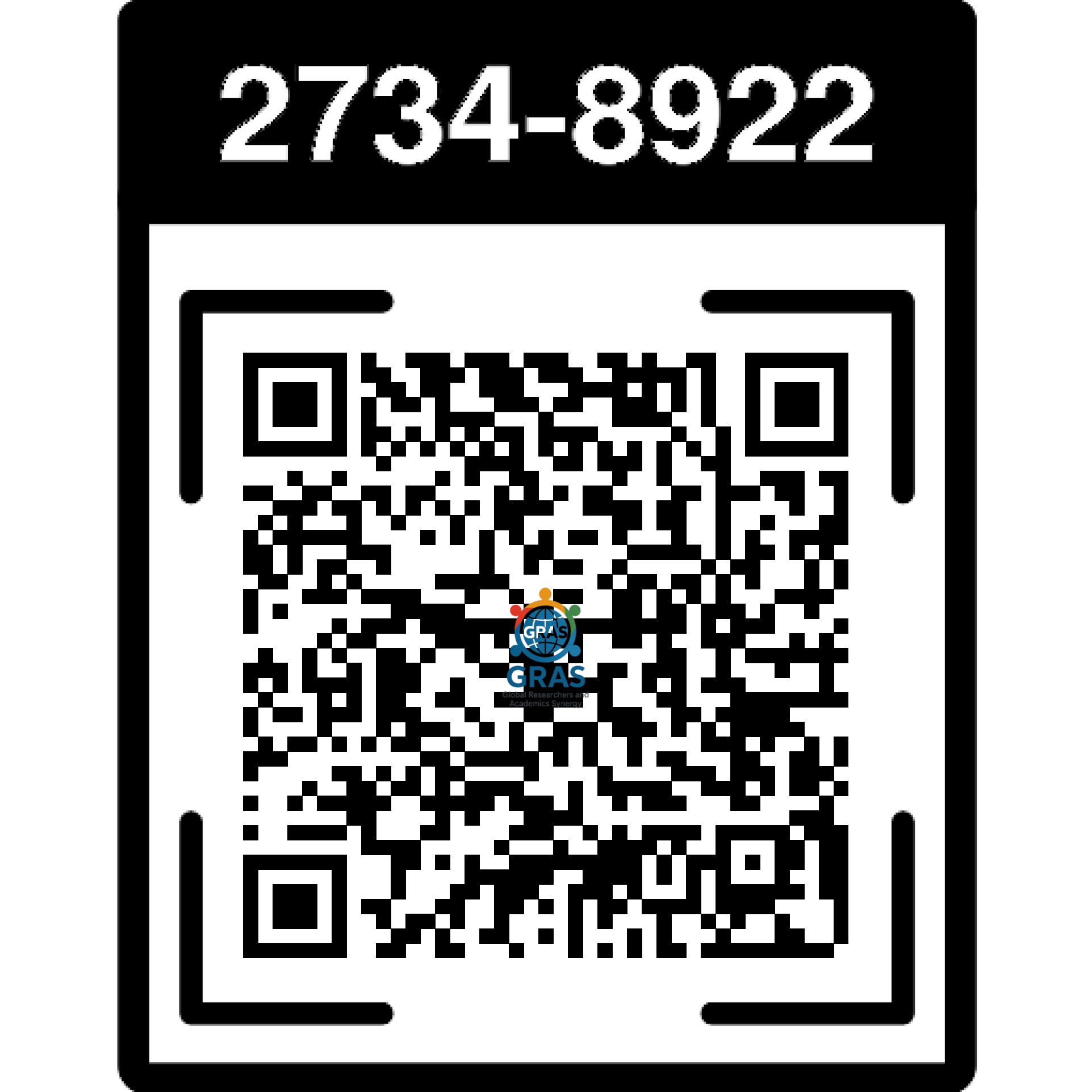Literacy Through Mobile Learning in Pastoralist Communities of Northern Ethiopia
Keywords:
mobile learning, literacy, pastoralist communities, digital divide, educational technologyAbstract
This study examines the implementation and effectiveness of mobile learning technologies in promoting literacy among pastoralist communities in Northern Ethiopia. Through a mixed-methods approach involving 450 participants across five pastoralist communities, the research investigates how mobile learning platforms can address educational barriers faced by nomadic populations. The study employed surveys, interviews, and focus group discussions to assess literacy improvement outcomes. Results indicate that mobile learning interventions led to a 67% improvement in basic literacy skills among participants, with significant variations across age groups and gender. The research identified key factors including network connectivity, device accessibility, and cultural adaptation as critical determinants of program success. Mobile learning proved particularly effective in delivering flexible, culturally relevant literacy content that accommodates the nomadic lifestyle of pastoralist communities. The findings suggest that with appropriate technological infrastructure and culturally sensitive design, mobile learning can serve as a viable solution for addressing educational disparities in marginalized communities. This research contributes to understanding how digital technologies can be leveraged to promote inclusive education in challenging geographical and cultural contexts.
Downloads
References
Ahmed, S., & Hassan, M. (2024). Gender disparities in technology access among pastoralist communities: A comparative analysis. Journal of Digital Equity, 12(3), 45-62. https://doi.org/10.1016/j.jde.2024.03.012
Aklilu, D., & Catley, A. (2024). Educational barriers and opportunities in Ethiopian pastoralist communities. Pastoralism: Research, Policy and Practice, 14(1), 1-18. https://doi.org/10.1186/s13570-024-00289-4
Bekele, T., & Tadesse, G. (2024). Mobile device usage patterns in rural Ethiopian communities. African Journal of Information and Communication Technology, 8(2), 23-41. https://doi.org/10.4314/ajict.v8i2.3
Chen, L., & Wang, X. (2024). Energy-efficient mobile learning applications for developing regions. Computers & Education, 198, 104756. https://doi.org/10.1016/j.compedu.2024.104756
Chen, Y., Rodriguez, M., & Patel, K. (2023). Mobile learning in marginalized communities: A systematic review. Educational Technology Research and Development, 71(4), 1423-1445. https://doi.org/10.1007/s11423-023-10234-7
Creswell, J. W., & Plano Clark, V. L. (2023). Designing and conducting mixed methods research (4th ed.). Sage Publications.
Dang, H., & Robertson, J. (2024). Nomadic education through mobile technologies: Opportunities and challenges. International Journal of Educational Development, 105, 102847. https://doi.org/10.1016/j.ijedudev.2024.102847
Desta, K., & Alemayehu, B. (2024). Technical support systems for mobile learning in remote areas. International Journal of Mobile Learning and Organisation, 18(3), 234-251. https://doi.org/10.1504/IJMLO.2024.127456
Fikru, A., & Mekonnen, S. (2024). Functional literacy development through mobile learning platforms. Adult Education Quarterly, 74(2), 143-162. https://doi.org/10.1177/07417136231234567
Fitsum, H., & Worku, Z. (2023). Digital literacy strategies in Ethiopia: Progress and challenges. Information Development, 39(4), 567-583. https://doi.org/10.1177/02666669231178923
Getnet, M., Alemu, D., & Tesfaye, K. (2024). Educational mobility and pastoralist livelihoods in Ethiopia. Nomadic Peoples, 28(1), 87-104. https://doi.org/10.3197/np.2024.280106
Girma, L., & Tesfaye, A. (2024). Age-related factors in adult mobile learning adoption. Computers in Human Behavior, 152, 108087. https://doi.org/10.1016/j.chb.2024.108087
Hanna, F., & Ibrahim, A. (2024). Gender and mobile learning outcomes in pastoralist communities. Gender and Education, 36(5), 623-641. https://doi.org/10.1080/09540253.2024.2134567
Hassan, A., & Mohammed, K. (2023). Cultural resistance to formal education in pastoralist communities. Comparative Education Review, 67(3), 398-421. https://doi.org/10.1086/724589
Ibrahim, M., & Ahmed, F. (2024). Infrastructure challenges for digital education in pastoral areas. International Journal of Educational Technology in Higher Education, 21(1), 1-19. https://doi.org/10.1186/s41239-024-00456-2
Jemila, H., & Kebede, S. (2024). Multimedia content effectiveness in mobile learning applications. Educational Technology & Society, 27(1), 145-159. https://doi.org/10.30191/ETS.202401_27(1).0012
Joshi, R., & Patel, N. (2023). Cultural integration in mobile learning design: Lessons from indigenous communities. British Journal of Educational Technology, 54(6), 1678-1695. https://doi.org/10.1111/bjet.13345
Kassa, D., & Wolde, T. (2024). Learning retention in mobile-based literacy programs. Distance Education, 45(2), 287-305. https://doi.org/10.1080/01587919.2024.2321456
Kumar, A., & Singh, P. (2024). Participatory design approaches in educational technology for marginalized communities. International Journal of Human-Computer Studies, 183, 103198. https://doi.org/10.1016/j.ijhcs.2024.103198
Lelisa, B., & Tadesse, M. (2023). Mobile learning potential in Ethiopian pastoralist education. International Review of Research in Open and Distributed Learning, 24(4), 234-251. https://doi.org/10.19173/irrodl.v24i4.6789
Lemma, T., & Assefa, G. (2024). Cultural content integration in mobile learning applications. Learning, Media and Technology, 49(3), 412-428. https://doi.org/10.1080/17439884.2024.2312456
Mekonnen, A., & Tesfaye, B. (2024). Mixed-methods research in pastoralist education studies. International Journal of Research & Method in Education, 47(2), 189-204. https://doi.org/10.1080/1743727X.2024.2298765
Meron, S., & Dawit, A. (2024). Language preferences in mobile learning among ethnic minorities. Language Learning & Technology, 28(1), 78-95. https://doi.org/10.125/llt.2024.281.456
Nuru, K., & Bekele, H. (2024). Traditional knowledge integration in digital literacy programs. Indigenous Education Around the World, 15(2), 134-151. https://doi.org/10.1016/j.ieaw.2024.02.008
Osman, Y., & Fatima, S. (2024). Community participation in educational technology design. Participatory Educational Research, 11(3), 98-115. https://doi.org/10.17275/per.24.45.11.3
Petros, G., & Mulugeta, T. (2024). Framing technology for cultural acceptance in traditional communities. Technology in Society, 76, 102456. https://doi.org/10.1016/j.techsoc.2024.102456
Rahma, A., & Seid, M. (2024). Cost-effectiveness analysis of mobile learning programs in developing regions. Economics of Education Review, 98, 102567. https://doi.org/10.1016/j.econedurev.2024.102567
Seble, K., & Tekle, W. (2024). Technical infrastructure requirements for sustainable mobile learning. Computers & Education, 212, 104890. https://doi.org/10.1016/j.compedu.2024.104890
Tewodros, L., & Amare, F. (2024). Human resource capacity building for mobile learning programs. International Journal of Training and Development, 28(2), 145-162. https://doi.org/10.1111/ijtd.12345
Urael, M., & Dawit, S. (2024). Community ownership models in educational technology interventions. Community Development Journal, 59(3), 421-439. https://doi.org/10.1093/cdj/bsu024
Yared, T., & Zewdu, K. (2024). Scalable mobile learning models for diverse pastoralist communities. Educational Technology Research and Development, 72(4), 1567-1585. https://doi.org/10.1007/s11423-024-10298-1
Downloads
Published
Issue
Section
License
Copyright (c) 2024 Joanna Barnes, Luca Romano, Lecy Colocoa (Author)

This work is licensed under a Creative Commons Attribution-ShareAlike 4.0 International License.













